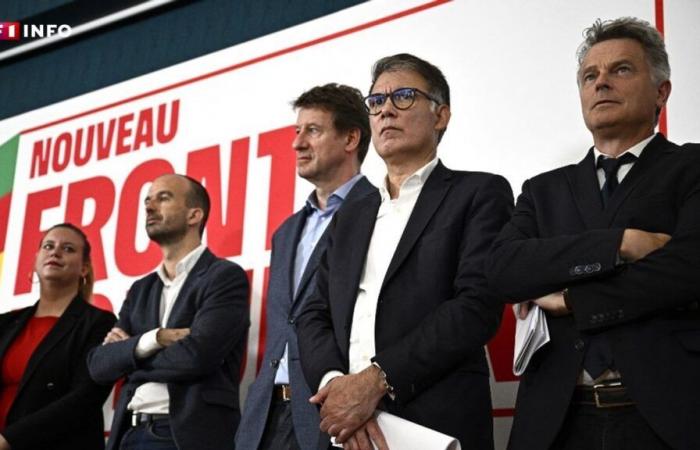The Socialist Party refused on Thursday January 16 to vote on the motion of censure tabled in particular by La France insoumise.
Enough to infuriate the Insoumis, for whom the PS left the New Popular Front.
What future for the alliance born from the legislative elections?
Follow the full coverage
The government of François Bayrou
The left at a time of friction. Tuesday January 14, Prime Minister François Bayrou delivered his general policy declaration to the National Assembly, without submitting to a vote of confidence. Immediately, and as they had done for Michel Barnier, La France insoumise and several left-wing deputies tabled a motion of censure.
But 48 hours later, the Socialist Party failed its allies, refusing to vote for it in an attempt to bring down the government. The reason? Victories obtained, such as a social conference on pensions, the renunciation of job cuts in National Education, the increase in health spending or even the abandonment of the extension of the waiting period for civil servants. Which infuriated La France insoumise. According to MP Éric Coquerel, the PS is not “no longer the partner” of LFI, he said this Friday on LCI (see video at the top of this article).
The socialist constituencies taken over by LFI?
What signify the end of the New Popular Front (NFP)? This alliance, born from the last legislative elections, is in any case going through its first turbulences. The atmosphere of last June 12 seems very far away. Remember, three days after the announcement of the dissolution of the National Assembly, the Socialist Party announced that it had reached an agreement with La France insoumise, the Communist Party and the Ecologists for the creation of the NFP. A month later, the strategy is winning: the left alliance becomes the largest bloc in the Assembly (before the coalition between the presidential camp and the Republican right), with 192 deputies.
Since then, all major texts have been voted on jointly by the four left-wing groups, including the two motions of censure against Michel Barnier. Until January 16, 2025, when only eight of the 66 socialist deputies joined the votes of their partners, while the national office of the PS had largely supported a lack of vote. “We do not have shameful negotiation”launched First Secretary Olivier Faure to the National Assembly. “It is our honor to have avoided measures that have a direct impact on purchasing power.”
-Arguments not enough to convince the rebels. The socialists “are in a majority without participation in government”castigated Éric Coquerel. Jean-Luc Mélenchon (new window) also stepped up to the plate, estimating on (new window) what a ps “fractures the NFP”. “The socialists are withdrawing from the New Popular Front, from its program and from what we carry”added LCI Clémence Guetté, LFI vice-president of the Assembly. This, on the other hand, is the business of the presidential camp. “Another path emerges, with difficulty, after a lot of work, discussions, negotiation, so that an agreement allows us to build a different future”rejoiced Prime Minister François Bayrou (new window).
-
Read also
Motion of censure rejected: only 131 votes “for”, François Bayrou wins his bet
This episode especially risks leaving traces within the left alliance. As of Tuesday, even before the PS's decision, Jean-Luc Mélenchon had warned: in the next legislative elections, he will nominate LFI candidates in all the constituencies in which the socialist deputies have not voted for censure.
Threat reiterated Thursday. “In all the constituencies of France, there will be a candidacy for an alternative to the current order, either through union or alone.” However, it may not be implemented immediately. Legislative elections are not planned before this summer, at the earliest, in the event of a new dissolution. By then, the PS may have voted for censorship…






